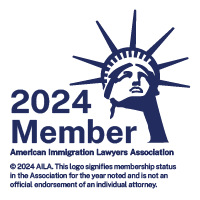In-Depth Analysis
President Trump has announced a dramatic increase in the fee for new H-1B visas—raising the cost to $100,000 per application. The H-1B program allows U.S. companies to hire foreign professionals with advanced education in fields such as IT, engineering, science, and medicine.
Until now, the full cost of an H-1B case was only a few thousand dollars. The new fee will not affect already approved visas and will apply only to applicants in the 2027 lottery cycle.
The H-1B visa was created in 1990 to help the U.S. address shortages of highly skilled workers. Before that, temporary worker programs mainly targeted agricultural laborers, shepherds, and nurses. Today, the H-1B program is a cornerstone for hiring top talent in tech and science.
H-1B visas are issued for up to 6 years, with extensions available for those pursuing a green card.
Each year, the U.S. grants 65,000 new visas, plus an additional 20,000 visas for holders of American master’s or doctoral degrees.
Due to overwhelming demand, applications are processed through a lottery system.
New H-1B applications will cost $100,000, starting with the 2027 lottery.
The government is also considering raising minimum wage requirements for H-1B workers.
The lottery may eventually be replaced with a system that prioritizes highly skilled and highly paid specialists.
Attracts the world’s best talent, fueling innovation, startups, and patents.
Boosts company productivity while lowering consumer costs.
High fees ensure only serious employers and dedicated professionals apply.
Prohibitively expensive for startups, universities, and small businesses.
May reduce opportunities for recent graduates of U.S. universities.
Criticized for putting downward pressure on American wages.
If you’re planning to apply for an H-1B visa—or are already working under one—now is the time to revisit your strategy with an immigration attorney and explore potential alternatives.
This policy shift is expected to face strong resistance from U.S. corporations and may spark a wave of legal challenges. The debate over America’s talent pipeline is only beginning, and the outcome will shape the future of tech, science, and innovation for years to come.
